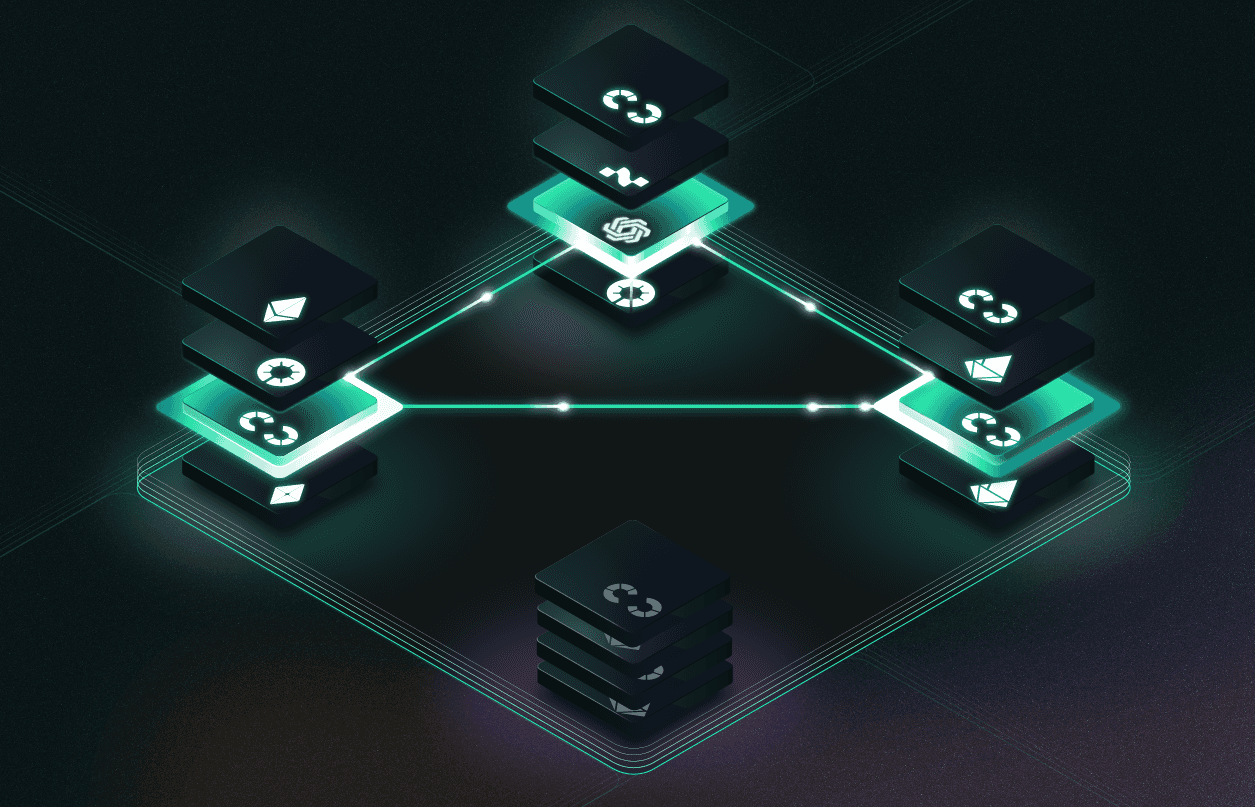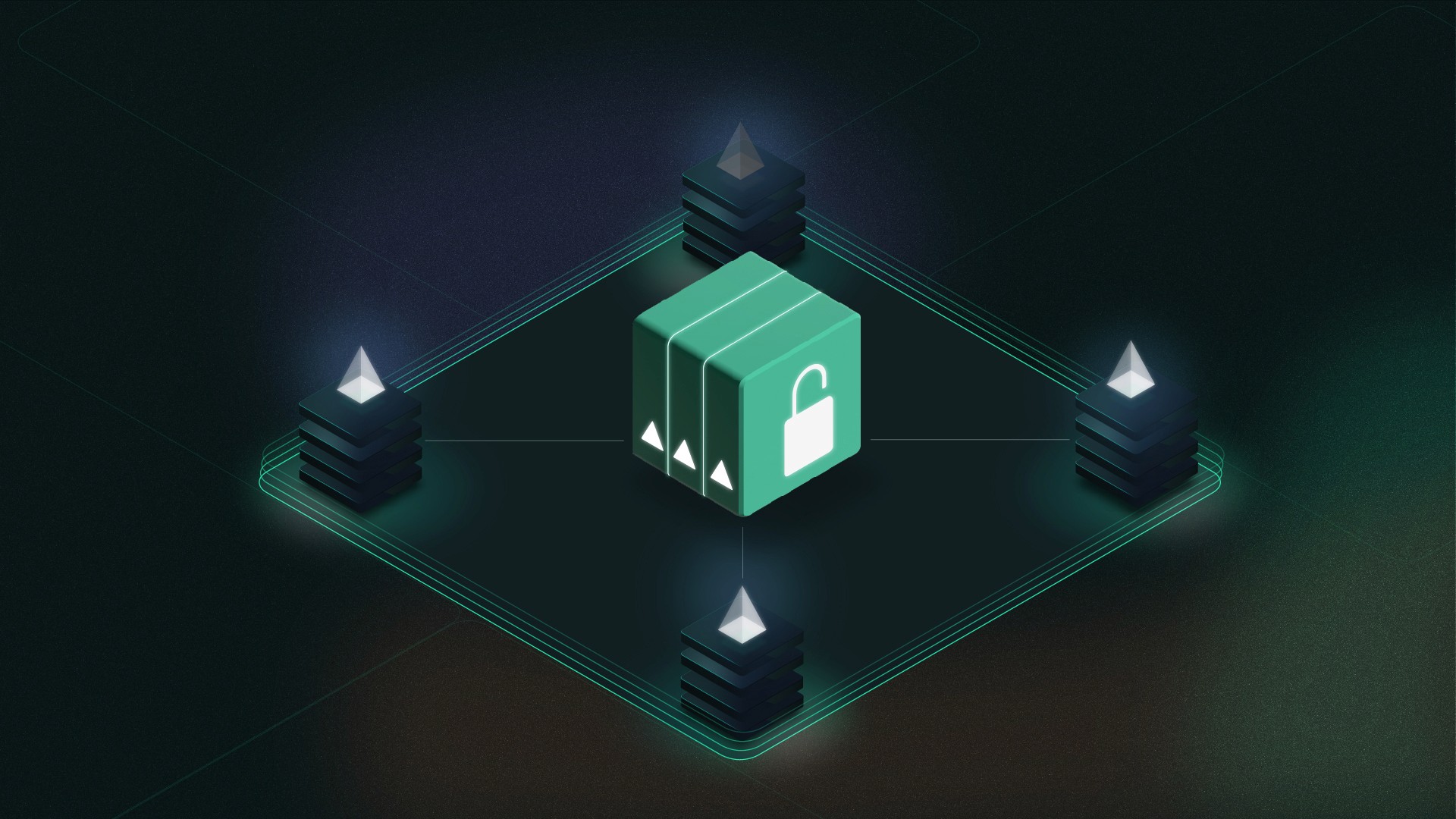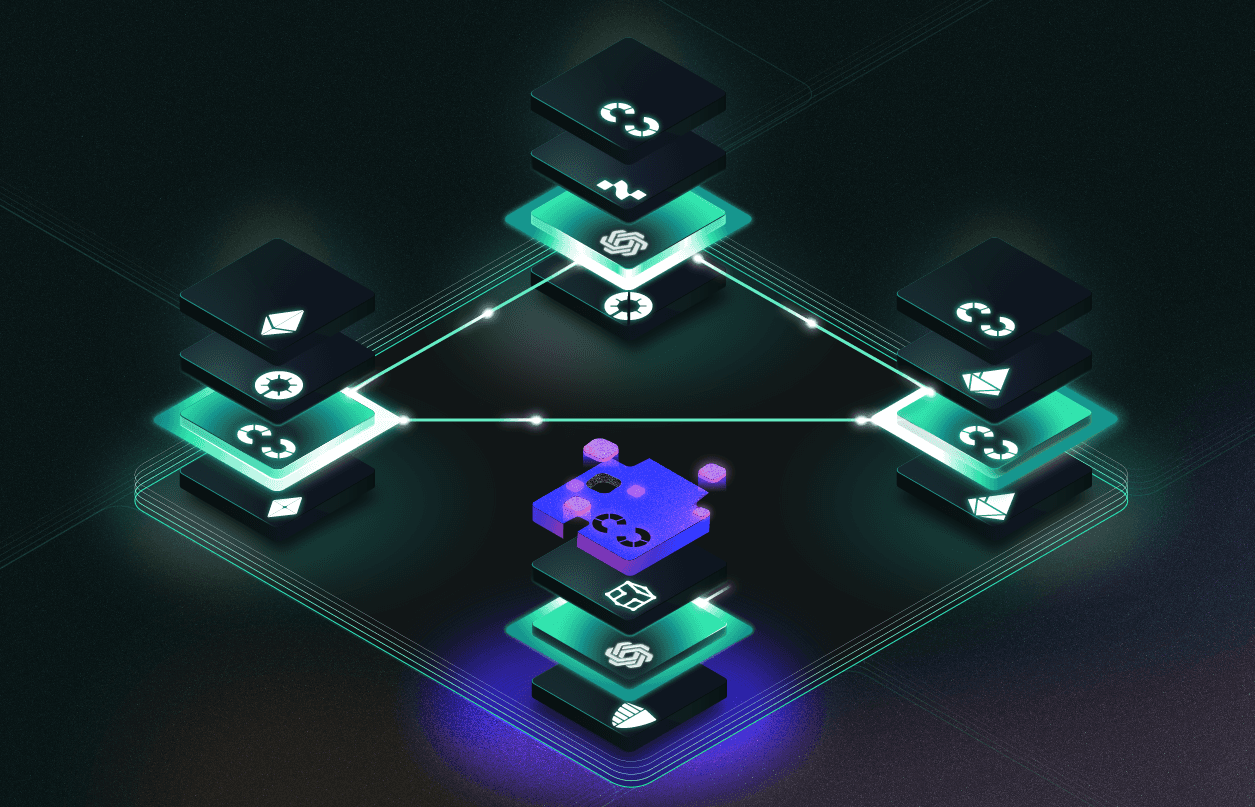
What is a
Distributed Validator?
Distributed validators (DVs) enable multiple nodes or parties
to run validators together.

What is a
Distributed Validator?
Distributed validators (DVs) enable multiple nodes or parties
to run validators together.

What is a
Distributed Validator?
Distributed validators (DVs) enable multiple nodes or parties
to run validators together.

The problem with validators today
Traditional validators are fragile
Most validators today run on a single machine, using a single private key. If that machine goes down, that validator goes down. Worse still, if that private key is compromised, that validator is compromised.
Each validator is a single-point-of-failure for the Ethereum network.
the new standard for validators
DVs enable multi-node operation
A distributed validator cluster consists of multiple nodes (ideally 4, 7, or 10). Each node within a cluster has a partial validator key share that is generated in a distributed key generation ceremony (DKG). The nodes within a DV cluster operate together as a single logical validator through the inclusion of a DV middleware client, Charon.
Distributed validators enable fault tolerance for validators without introducing slashing risk.
How a DV works
Threshold signing enables secure & resilient operation
During operation, Charon coordinates what each validator signs by reconstituting the partial signatures into an aggregate signature for the distributed validator. As long as >66% of the nodes within a cluster are online, the DV cluster will be online.
Distributed validators improve security by ensuring that at no time is the full validator private key present in a single place.
The Capabilities of DVs

High availability without slashing
Distributed validator clusters can continue operating normally even with up to one-third of the nodes offline or malfunctioning. This feature allows for high uptime without the slashing risks associated with running two or more copies of a traditional validator.

High Availability Without Slashing
Distributed validator clusters can continue operating normally even with up to one-third of the nodes offline or malfunctioning. This feature allows for high uptime without the slashing risks associated with running two or more copies of a traditional validator.

Private key distribution & security
Validator key shares are generated through a distributed key generation (DKG) ceremony, ensuring that the full key never exists. This greatly reduces the risk of validator key compromise since more than two-thirds of the key shares would need to be stolen to derive the full validator private key.

Byzantine fault tolerance
Multiple Charon clients come to consensus on validator duties and behave as a single unified proof-of-stake validator, achieving byzantine-fault tolerance given a supermajority of honest nodes.

Client diversity
Each node within a DV cluster can run their own combination of execution, consensus, and validator clients, allowing client diversity to be built directly into a validator. This ensures a DV cluster will remain unaffected by issues with any one client.



What About Performance?
Charon has been carefully architected to ensure DVs operate at the same (or better) level of performance as a traditional validator. The performance of DVs has been verified through extensive testing.
Ready to Start?
Ready to Start?
Run or stake on distributed validators, to improve the security of your stake while strengthening the foundation of Ethereum for everyone.
Run or stake on distributed validators, to improve the security of your stake while strengthening the foundation of Ethereum for everyone.

High Availability Without Slashing
Distributed Validator Clusters can continue operating normally even with up to 1/3rd of the nodes offline or malfunctioning. This feature allows for high uptime without the slashing risks associated with running two or more copies of a traditional validator.

High Availability Without Slashing
Distributed Validator Clusters can continue operating normally even with up to 1/3rd of the nodes offline or malfunctioning. This feature allows for high uptime without the slashing risks associated with running two or more copies of a traditional validator.

Private Key Distribution & Security
Validator key shares are generated through a Distributed Key Generation (DKG) ceremony, ensuring that the full key never exists. This greatly reduces the risk of validator key compromise since more than two-thirds of the key shares would need to be stolen to derive the full validator private key.

Private Key Distribution & Security
Validator key shares are generated through a Distributed Key Generation (DKG) ceremony, ensuring that the full key never exists. This greatly reduces the risk of validator key compromise since more than two-thirds of the key shares would need to be stolen to derive the full validator private key.

Byzantine Fault Tolerance
Multiple Charon clients come to consensus on validator duties and behave as a single unified proof-of-stake validator, achieving byzantine-fault tolerance given a supermajority of honest nodes.

Byzantine Fault Tolerance
Multiple Charon clients come to consensus on validator duties and behave as a single unified proof-of-stake validator, achieving byzantine-fault tolerance given a supermajority of honest nodes.

Client Diversity
Each node within a DV cluster can run their own combination of EL, CL, and validator clients, allowing client diversity to be built directly into a validator, ensuring it will remain unaffected by issues with any one client.

Client Diversity
Each node within a DV cluster can run their own combination of EL, CL, and validator clients, allowing client diversity to be built directly into a validator, ensuring it will remain unaffected by issues with any one client.
The capabilities of DV
Get Started
Products
Ecosystem
Get Started
Products
Ecosystem
Get Started
Products
Ecosystem


The problem with validators today
Traditional validators are fragile
Most validators today run on a single machine, using a single private key. If that machine goes down, that validator goes down. Worse still, if that private key is compromised, that validator is compromised.
Each validator is a single-point-of-failure for the Ethereum network.
The problem with validators today
Traditional validators are fragile
Most validators today run on a single machine, using a single private key. If that machine goes down, that validator goes down. Worse still, if that private key is compromised, that validator is compromised.
Each validator is a single-point-of-failure for the Ethereum network.
the new standard for validators
DVs enable multi-node operation
A distributed validator cluster consists of multiple nodes (ideally 4, 7, or 10). Each node within a cluster has a partial validator key share that is generated in a distributed key generation ceremony (DKG). The nodes within a DV cluster operate together as a single logical validator through the inclusion of a DV middleware client, Charon.
Distributed validators enable fault tolerance for validators without introducing slashing risk.
the new standard for validators
DVs enable multi-node operation
A distributed validator cluster consists of multiple nodes (ideally 4, 7, or 10). Each node within a cluster has a partial validator key share that is generated in a distributed key generation ceremony (DKG). The nodes within a DV cluster operate together as a single logical validator through the inclusion of a DV middleware client, Charon.
Distributed validators enable fault tolerance for validators without introducing slashing risk.
How a DV works
Threshold signing enables secure & resilient operation
During operation, Charon coordinates what each validator signs by reconstituting the partial signatures into an aggregate signature for the distributed validator. As long as >66% of the nodes within a cluster are online, the DV cluster will be online.
Distributed validators improve security by ensuring that at no time is the full validator private key present in a single place.
How a DV works
Threshold signing enables secure & resilient operation
During operation, Charon coordinates what each validator signs by reconstituting the partial signatures into an aggregate signature for the distributed validator. As long as >66% of the nodes within a cluster are online, the DV cluster will be online.
Distributed validators improve security by ensuring that at no time is the full validator private key present in a single place.

The problem with validators today
Traditional validators are fragile
Most validators today run on a single machine, using a single private key. If that machine goes down, that validator goes down. Worse still, if that private key is compromised, that validator is compromised.
Each validator is a single-point-of-failure for the Ethereum network.
The problem with validators today
Traditional validators are fragile
Most validators today run on a single machine, using a single private key. If that machine goes down, that validator goes down. Worse still, if that private key is compromised, that validator is compromised.
Each validator is a single-point-of-failure for the Ethereum network.
the new standard for validators
DVs enable multi-node operation
A distributed validator cluster consists of multiple nodes (ideally 4, 7, or 10). Each node within a cluster has a partial validator key share that is generated in a distributed key generation ceremony (DKG). The nodes within a DV cluster operate together as a single logical validator through the inclusion of a DV middleware client, Charon.
Distributed validators enable fault tolerance for validators without introducing slashing risk.
the new standard for validators
DVs enable multi-node operation
A distributed validator cluster consists of multiple nodes (ideally 4, 7, or 10). Each node within a cluster has a partial validator key share that is generated in a distributed key generation ceremony (DKG). The nodes within a DV cluster operate together as a single logical validator through the inclusion of a DV middleware client, Charon.
Distributed validators enable fault tolerance for validators without introducing slashing risk.
How a DV works
Threshold signing enables secure & resilient operation
During operation, Charon coordinates what each validator signs by reconstituting the partial signatures into an aggregate signature for the distributed validator. As long as >66% of the nodes within a cluster are online, the DV cluster will be online.
Distributed validators improve security by ensuring that at no time is the full validator private key present in a single place.
How a DV works
Threshold signing enables secure & resilient operation
During operation, Charon coordinates what each validator signs by reconstituting the partial signatures into an aggregate signature for the distributed validator. As long as >66% of the nodes within a cluster are online, the DV cluster will be online.
Distributed validators improve security by ensuring that at no time is the full validator private key present in a single place.
Are you ready to start?
Staking on validators that run across a squad of nodes or operators strengthens the foundation of Ethereum for everyone.




